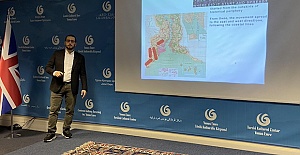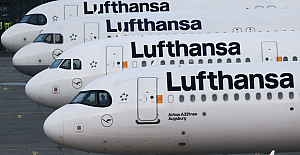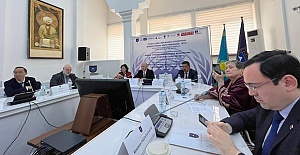In one of the biggest ever bank heists, a global cyber crime ring stole $45 million from two Middle Eastern banks by hacking into credit card processing firms and withdrawing money from ATMs in 27 countries, U.S. prosecutors said on Thursday. The U.S. Justice Department accused eight men of allegedly forming the New York-based cell of the organization, and said seven of them have been arrested. The eighth, allegedly a leader of the cell, was reported to have been murdered in the Dominican Republic on April 27. The ringleaders are believed to be outside the United States but prosecutors declined to give details, citing the ongoing investigation. What's clear is the sheer scope and speed of the crimes: in one of the attacks, in just over 10 hours, $40 million was raided from ATMs in 24 countries involving 36,000 transactions.
"In the place of guns and masks, this cyber crime organization used laptops and the Internet," U.S. Attorney for the Eastern District of New York Loretta Lynch said at a news conference. "Moving as swiftly as data over the Internet, the organization worked its way from the computer systems of international corporations to the streets of New York City."
The case demonstrates the major threat that cyber crime poses to banks around the world. It also shows how increasingly international and sophisticated criminal gangs have become, particularly those using the Internet.
Prosecutors highlighted the "surgical precision" of these hackers, the global nature of their organization, and the speed and coordination with which they executed operations in 27 countries.
According to the complaint, the gang broke into the computers of two credit card processors, one in India in December 2012 and the other in the United States this February. The companies were not identified.
The hackers increased the available balance and withdrawal limits on prepaid MasterCard debit cards issued by Bank of Muscat of Oman, and National Bank of Ras Al Khaimah PSC (RAKBANK) of the United Arab Emirates, according to the complaint. They then distributed counterfeit debit cards to "cashers" around the world, enabling them to siphon millions of dollars from ATMs in a matter of hours.
In New York, for example, members of the cell fanned out into the city on the afternoon of Feb. 19, armed with cards bearing a single Bank of Muscat account number. Ten hours later, they had completed 2,904 withdrawals for $2.4 million in all, the final transaction coming around 1:26 a.m., prosecutors said.
Casher crews in other countries were busy doing the same, pulling some $40 million from Bank of Muscat to add to the $5 million they stole from RAKBANK in December, according to the indictment. In total, cashers made some 40,500 withdrawals in 27 countries during the two coordinated incidents.
Prosecutors said the method of attack was known as "Unlimited Operations" in the cyber underworld.
Representatives for the two banks could not be reached for comment outside of regular business hours.
In a statement, Mastercard said it had cooperated with law enforcement in the investigation and stressed that its systems were not involved or compromised in the attacks.
In late February, Bank Muscat disclosed that it would take an impairment charge of up to 15 million rials ($39 million) because it had been defrauded overseas by 12 prepaid debit cards used for travel. That charge was equal to more than half of the 25 million rials profit it posted in its first quarter ended March 31.
Cyber bank theft spans 27 countries
Eight defendants have been charged in the largest bank heist of its kind, a $45 million worldwide theft
10 Mayıs 2013 Cuma 09:29
reads.




 The candidates vying to be the next London mayor
The candidates vying to be the next London mayor Enfield Council commits to anti-racism and diversity pledge
Enfield Council commits to anti-racism and diversity pledge President Erdogan promised supporters his party would learn its lessons from the defeat
President Erdogan promised supporters his party would learn its lessons from the defeat Mayor of London and London Assembly elections
Mayor of London and London Assembly elections A man with a sword was arrested for injuring at least five people,
A man with a sword was arrested for injuring at least five people, Off duty Police sergeant Eren Emin catch suspected thief while on stag do
Off duty Police sergeant Eren Emin catch suspected thief while on stag do A Century of Urban Transformation, Istanbul’s Evolution
A Century of Urban Transformation, Istanbul’s Evolution Future Painters Exhibition at Tottenham Hotspur Stadium
Future Painters Exhibition at Tottenham Hotspur Stadium English Premier League leaders Arsenal will visit title contenders
English Premier League leaders Arsenal will visit title contenders Liverpool meet Atalanta and West Ham face Bayer Leverkusen
Liverpool meet Atalanta and West Ham face Bayer Leverkusen Arsenal face Bayern Munich and Manchester City play Real Madrid
Arsenal face Bayern Munich and Manchester City play Real Madrid UK Transfer deadline day, the transfer window closes tonight
UK Transfer deadline day, the transfer window closes tonight Islam Channel Business Awards 2024 have been announced
Islam Channel Business Awards 2024 have been announced Petrol prices on UK forecourts hit 150p a litre
Petrol prices on UK forecourts hit 150p a litre Europe's travel strikes: Flight and train disruption you can expect in April
Europe's travel strikes: Flight and train disruption you can expect in April Enfield Council website achieves digital inclusion recognition
Enfield Council website achieves digital inclusion recognition














